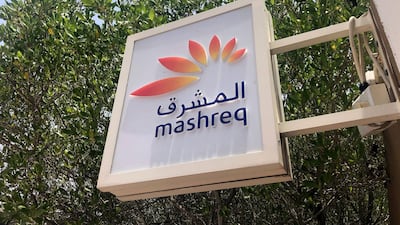The UAE’s 10 biggest lenders increased profitability in the second quarter of this year, as their loans and advances grew amid the Covid-19 pandemic-driven economic slowdown.
The banks posted a 21.2 per cent jump in combined net profit for the April-June quarter, compared to the first quarter of the year. Profits were helped by lower provisioning and tighter cost controls, Alvarez & Marsal (A&M) said in its UAE Banking Pulse for Q2 2020 on Wednesday.
However, net interest margins (NIM) fell during the second quarter, driven down by all-time low interest rates. The outlook for the third quarter also remains subdued, as lower oil prices and a rise in provisions for bad loans are likely to weigh on profitability as Covid-19 continues to cause uncertainty.
“The profitability of the UAE banks in second quarter rebounded as cost optimisation measures and lower provisioning supported income,” Asad Ahmed, A&M managing director and head of Middle East Financial Services, said. “UAE lenders are among the most profitable globally, bolstered by a mix of sound liquidity, strong capitalisation, low levels of non-performing loans, and a substantial proportion of non-interest-bearing deposits.”
While the Central Bank of the UAE expects a pickup in corporate credit demand during the third quarter of this year, the recovery would likely be fragile, he said.
“In the forthcoming quarters, it may be beneficial for banks to introduce efficiency-boosting measures and increase their focus towards digitisation to save costs and support the bottom-line.”
The report looks at the key performance metrics of the country’s 10 largest lenders – First Abu Dhabi Bank, Emirates NBD, Abu Dhabi Commercial Bank, Dubai Islamic Bank, Mashreq Bank, Abu Dhabi Islamic Bank, Commercial Bank of Dubai, National Bank of Fujairah, National Bank of Ras Al-Khaimah and Sharjah Islamic Bank.
Lenders across the globe are facing a tough operating environment, making provisions for expected loan losses as the global economy slides into its deepest recession since the 1930s. JPMorgan, the biggest US bank, set aside $10.47bn (Dh38.4bn) to cover bad loans, which halved its second quarter profit. HSBC, Europe's largest lender, also reported a 57 per cent decline in its second quarter profit earlier this month and warned loan losses may climb to as much as $13bn.
Despite these headwinds, loans and advances and deposit growth for UAE lenders improved in the second quarter. Total loans grew 1 per cent during the quarter and deposits rose 1.1 per cent. DIB outperformed its peers with double-digit loan growth of 11 per cent, while Mashreq outshone in terms of deposit-taking, achieving 11 per cent growth.
The banks' combined loan-to-deposit ratio remained broadly unchanged at 87.7 per cent during the period, according to the report that was co-authored by Saeeda Jaffar, A&M managing director and head of Middle East. Operating income took a hit for the second consecutive quarter, declining 9.2 per cent from first three months of 2020 as all income streams weakened.
Net interest income dropped 7.3 per cent and net fee income fell 23 per cent, as restrictions on movements in the country during the second quarter curtailed new business, according to the report.
NIM also fell by about 24 basis point to 2.29 per cent because of the sharp decline in interest rates. Nine of the top 10 banks reported lower margins during the period. The lenders' combined cost-to-income ratio continued to improve, though. It reached 33.4 per cent as operating expenses fell by about 11 per cent as banks focused on optimising their expenses, the report said.


